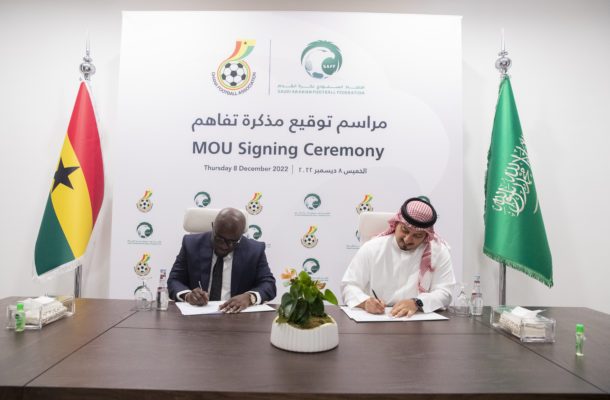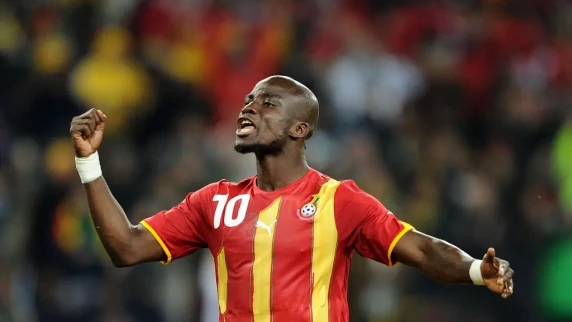“Women’s Football Progress in Ghana
Related Articles Women’s Football Progress in Ghana
Women’s Football Progress in Ghana

Women’s football in Ghana has come a long way, overcoming numerous challenges and achieving significant milestones. From grassroots development to national team achievements, the sport has witnessed steady growth and increasing recognition. This article delves into the progress of women’s football in Ghana, highlighting key developments, challenges, and future prospects.
Historical Background
The history of women’s football in Ghana dates back to the 1990s when the first organized leagues and competitions were established. Despite facing societal prejudices and limited resources, passionate individuals and organizations worked tirelessly to promote the sport. The formation of the Ghana Women’s Football Association (GWFA) in 1998 marked a turning point, providing a formal structure for the development of women’s football in the country.
Grassroots Development
Grassroots development is crucial for the sustainable growth of any sport, and women’s football in Ghana is no exception. Various initiatives have been implemented to encourage participation at the grassroots level, including:
-
School Programs: Collaborations between the GWFA and educational institutions have led to the introduction of football programs in schools, providing young girls with opportunities to learn and play the game.
-
Community-Based Leagues: Local communities have established their own leagues and tournaments, creating platforms for girls and women to showcase their talents and develop their skills.
-
Training Camps and Workshops: The GWFA organizes training camps and workshops for coaches and players, equipping them with the necessary knowledge and skills to improve their performance.

National Team Achievements
The Ghana women’s national football team, known as the Black Queens, has achieved significant milestones on the international stage. Some notable achievements include:
-
FIFA Women’s World Cup Qualification: The Black Queens have qualified for the FIFA Women’s World Cup on three occasions, in 1999, 2003, and 2007. These appearances provided valuable exposure and experience for the team and helped raise the profile of women’s football in Ghana.
-
African Women’s Championship Success: The Black Queens have consistently performed well in the African Women’s Championship (now known as the Women’s Africa Cup of Nations), reaching the final on three occasions. Although they have yet to win the tournament, their strong performances have established them as one of the top teams in Africa.
-
All Africa Games Medals: The Black Queens have won medals at the All Africa Games, including a gold medal in 2015. These achievements demonstrate the team’s competitiveness and ability to perform under pressure.
League Development
The development of a strong domestic league is essential for the long-term success of women’s football in Ghana. The Ghana Women’s Premier League, established in 2012, has played a crucial role in providing a platform for talented players to compete and develop their skills. The league has faced challenges such as limited funding and infrastructure, but it has gradually improved over the years.
Challenges and Obstacles
Despite the progress made, women’s football in Ghana continues to face numerous challenges and obstacles, including:
-
Limited Funding and Resources: Lack of financial support is a major obstacle for women’s football in Ghana. The sport receives significantly less funding compared to men’s football, which affects the quality of training facilities, equipment, and coaching staff.
-
Societal Prejudices and Stereotypes: Women’s football in Ghana still faces societal prejudices and stereotypes that discourage girls and women from participating in the sport. These prejudices often stem from cultural beliefs that prioritize men’s sports over women’s sports.
-
Inadequate Infrastructure: Many football pitches and training facilities in Ghana are in poor condition, making it difficult for players to train and compete effectively. This lack of adequate infrastructure hinders the development of women’s football in the country.
-
Limited Media Coverage: Women’s football in Ghana receives limited media coverage compared to men’s football. This lack of exposure makes it difficult to attract sponsors and generate public interest in the sport.
Strategies for Further Development
To overcome these challenges and further develop women’s football in Ghana, the following strategies should be implemented:
-
Increased Investment: The government, corporate sponsors, and football authorities should increase their investment in women’s football. This investment should be directed towards improving infrastructure, providing better training facilities, and supporting grassroots development programs.
-
Promoting Gender Equality: Efforts should be made to promote gender equality in sports and challenge societal prejudices and stereotypes that discourage women from participating in football. This can be achieved through education campaigns, media advocacy, and role model programs.
-
Strengthening the League: The Ghana Women’s Premier League should be strengthened by providing more funding, improving infrastructure, and attracting more sponsors. This will help raise the quality of the league and make it more attractive to players and fans.
-
Enhancing Media Coverage: Media organizations should increase their coverage of women’s football in Ghana. This will help raise the profile of the sport, attract sponsors, and generate public interest.
-
Developing Coaching and Refereeing: More resources should be invested in developing coaching and refereeing in women’s football. This will help improve the quality of training and officiating, which is essential for the development of the sport.
Future Prospects
Despite the challenges, the future of women’s football in Ghana looks promising. With increased investment, improved infrastructure, and a growing number of talented players, the sport has the potential to reach new heights. The Black Queens have the potential to qualify for more FIFA Women’s World Cups and compete for top honors in the Women’s Africa Cup of Nations. The Ghana Women’s Premier League has the potential to become one of the top leagues in Africa, attracting talented players from across the continent.
Conclusion
Women’s football in Ghana has made significant progress over the years, overcoming numerous challenges and achieving notable milestones. From grassroots development to national team achievements, the sport has witnessed steady growth and increasing recognition. However, challenges such as limited funding, societal prejudices, and inadequate infrastructure still need to be addressed. By implementing strategies such as increased investment, promoting gender equality, strengthening the league, enhancing media coverage, and developing coaching and refereeing, women’s football in Ghana can reach new heights and achieve its full potential.

